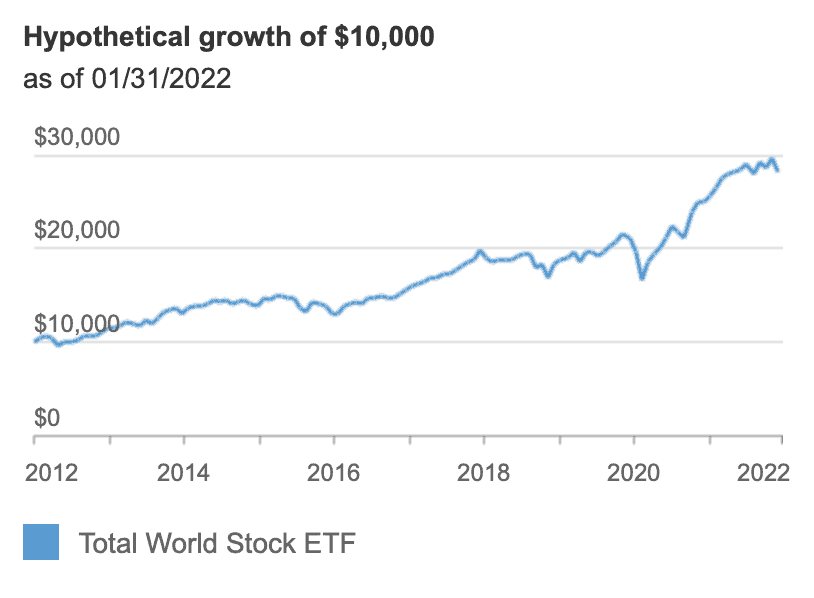Work shapes a third of our lives. If you’re unsure about how to genuinely feel […]
If you are interested to buy an ETF that tracks the NASDAQ-100 index, either CNDX or QQQ will give you access to a diverse group of cutting-edge Nasdaq-100 companies.
CNDX: iShares NASDAQ 100 UCITS ETF
QQQ: Invesco NASDAQ 100 ETF
CNDX
- Listed on the London Stock Exchange
- The Fund seeks to track the performance of an index composed of 100 of the largest non-financial companies listed on the NASDAQ Stock Market.
- Targeted exposure to the largest non-financial stocks listed on The Nasdaq Stock Market
- Direct investment into companies across major industry groups including computer hardware and software, telecommunications, retail/wholesale trade and biotechnology
- International and large market capitalisation companies exposure
CNDX vs QQQ
CNDX is listed on the London Stock Exchange while QQQ is listed on the Nasdaq. They differ in terms of their fund manager, expense ratio, dividend withholding tax and dividend distributions.
Fund manager
CNDX is managed by Blackrock and listed on the London Stock Exchange. while QQQ is managed by Invesco and listed on the Nasdaq
AUM
| | CNDX | QQQ |
| AUM | $10.2 Million | $200.1 Billion |
QQQ has a much higher AUM than CNDX.
Share price
| | CNDX | QQQ |
| Share Price | 861USD | 369USD |
You will need a larger capital to invest in CNDX, as compared to QQQ.
Dividend Withholding Tax
CNDX is domiciled in Ireland, while QQQ is domiciled in the US. You will incur a lower dividend withholding tax (15%) when you invest in Irish-domiciled ETFs. If you are a non-resident alien to the US, you will incur the 30% dividend withholding tax.
| | CNDX | QQQ |
| Dividend Withholding Tax | 15% | 30% |
Dividend distribution
CNDX is an accumulating ETF which automatically reinvest your dividends. This is convenient for an investor who wants to invest in CNDX over the long term. You do not need to incur any additional transaction fees when the fund reinvests your dividends for you. This allows you to compound your money.
QQQ is a distributing ETF. This means that any dividends received by the fund manager will be distributed to you and it will be done on a quarterly basis.
Estate tax
You have to consider estate tax when you invest in US-related assets. This ranges from 18% all the way to 40%.
An estate tax is a tax on the right for you to transfer your assets after you have passed on.
Since QQQ is domiciled in the US, it will be included in your taxable estate. Even though CNDX owns US stocks, you will not incur the estate tax as it is domiciled in Ireland.
You will only incur an estate tax on your Irish-domiciled ETFs if:
- You or your beneficiary are an Irish citizen
- You own an Irish property
Expense ratio
The expense ratio is charged by the fund manager to cover the costs of running the fund.
| | CNDX | QQQ |
| Expense ratio | 0.33% | 0.20% |
CNDX has a higher expense ratio as compared to QQQ.
Liquidity
If you intend to trade these ETFs, you may want to look at their trading volume
| | CNDX | QQQ |
| 30 Day Average Trading Volume | 14585 | 55.33 million |
QQQ has a much higher trading volume than CNDX as it is listed on the Nasdaq. It will be easier to buy or sell QQQ at your intended price.
Conclusion
Both ETFs track the same index, so their performances should be very similar. The main differences
- Tax efficiency
- Exchange market
- Expense ratio
- Dividend distribution







